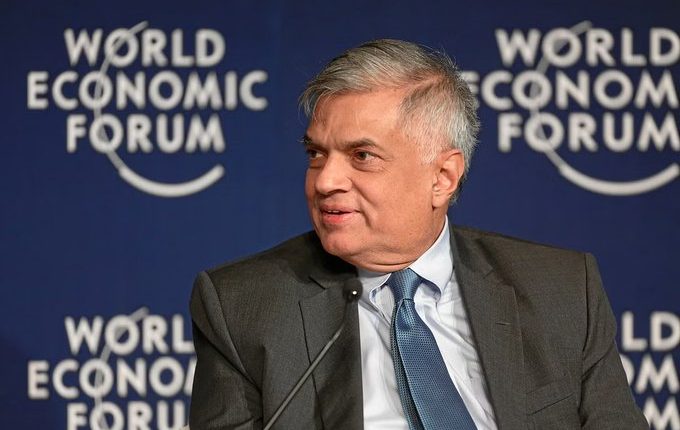Sri Lanka Parliament Passes Domestic Debt Restructure Plan
Motion was passed with 122 voting for and 62 voting against
COLOMBO – Sri Lanka’s parliament has passed a motion giving authority for the Finance Minister to restructure domestic debt, following a sovereign default that came after several years of money printing by the central bank for stimulus (rate cuts).
The motion was passed with 122 voting for and 62 voting against, Speaker Mahinda Yapa Abeywardene said.
Sri Lanka’s opposition voted against the motion, which involves extending the maturities of the government bonds held by the Employees Provident Fund and the central bank.
Multiple speakers said there was no consent from the beneficiaries of the provident funds which were managed by the state.
Earlier, Sri Lanka President Ranil Wickremesinghe has asked business leaders to educate their employees on the significance of the country’s domestic debt restructuring (DDR), noting that reduced interest rates will follow along with development assistance.
At a meeting held at the presidential secretariat in Colombo Thursday March 29, Wickremesinghe and other government officials had briefed various stakeholder groups on the debt restructuring exercise.
“The president urged the business leaders to educate their employees on this crucial step aimed to ensure that individuals and industries comprehend the significance of this financial manoeuvre. He said by engaging in widespread explanations, stakeholders can grasp the nuances of the restructuring and gauge its influence on their livelihoods,” a statement from the president’s media division (PMD) said on Friday June 30.
Anticipated reduction in interest rates, providing a glimmer of hope for individuals burdened by financial obligations is expected, according to the president. While the exact timeline remains uncertain, experts predict a noticeable decline in interest rates within a matter of months, the statement said.
“I think best is for you all to go out and explain what this debt restructuring means to you all and to the workforce. I think that’s what you all should do and if you can keep that momentum in the next few days, it will be very helpful. This is about the best that we can achieve. With this comes the fact that our interest rates will come down. It’s a matter of months before it comes down. Secondly, the development assistance will start, which will be a boost to a part of the construction sector,” the president was quoted as saying.
As part of this restructuring, an injection of development assistance is on the horizon, poised to breathe new life into the construction sector. This infusion of support has the potential to stimulate growth, create employment opportunities, and invigorate the overall economy, the president has said.
Addressing trade union representatives, the president said failing to restructure domestic debt could lead to a potential increase in interest rates for loans obtained by small businesses. According to the PMD statement, he had also expressed concerns about the possibility of the dollar’s resurgence, given the strengthening of the rupee. DDO must be conducted simultaneously with foreign debt optimisation to mitigate this risk, he was quoted as saying.
The law guarantees the continuation of the 9 percent annual interest provided to beneficiaries under the Employees’ Provident Fund (EPF), the president had noted, urging unions not to harbour any doubts regarding future benefits.
Meanwhile, Sri Lanka’s parliamentary Committee on Public Finance (COPF) has endorsed a domestic debt restructuring (DDR) proposal with majority support, though opposition members had voted against it, COPF chairman Harsha de Silva said.
The chairman himself had refrained from voting, he told EconomyNext Friday June 30 evening.
Government members in the committee had voted for the plan at Friday’s meeting, said de Silva.
On Thursday, COPF had discussed the lack of consent of beneficiaries of the Employment Provident Fund (EPF) on the DDR plan.
MP de Silva tweeted that evening that concerns were raised at the meeting about the burden falling on superannuation funds including EPF without considering the consent of depositors.
“While banks were excluded due to existing stress & non-performing loans, the EPF/ETF, which carries most of the burden, faces potential opportunity loss and lacks a say in decisions impacting peoples’ life savings. This raises questions about #equity and #transparency.” – EconomyNext



Comments are closed, but trackbacks and pingbacks are open.